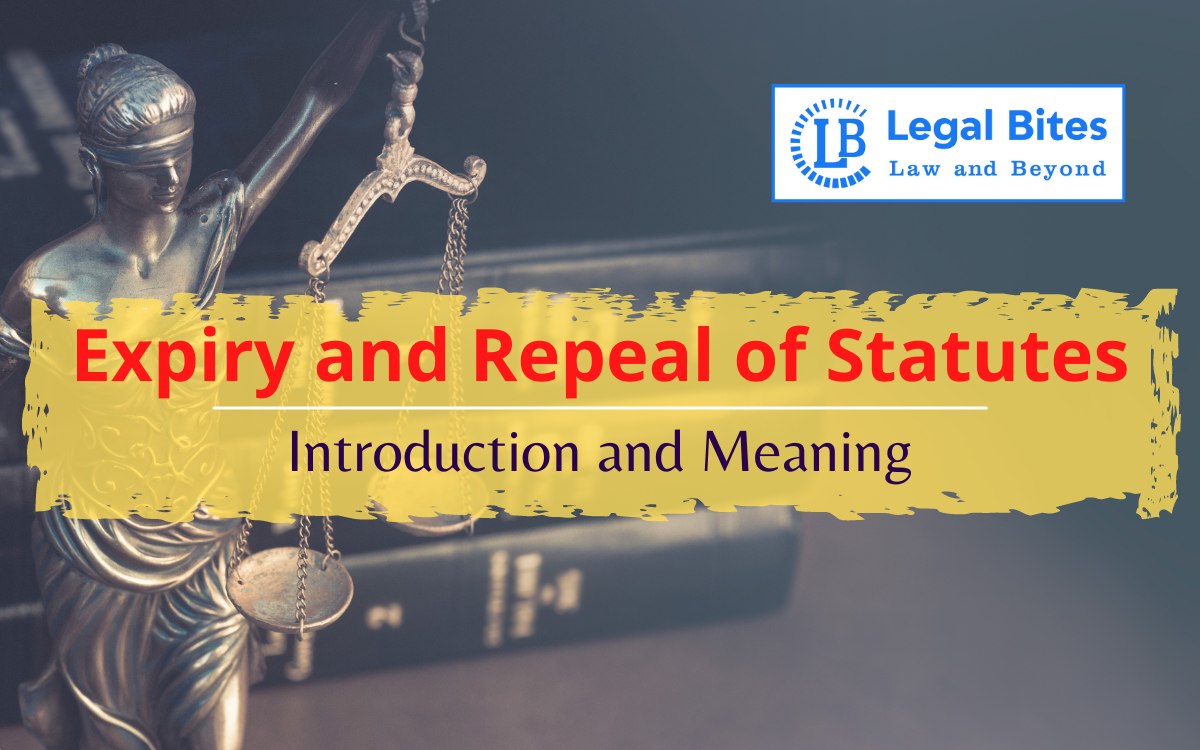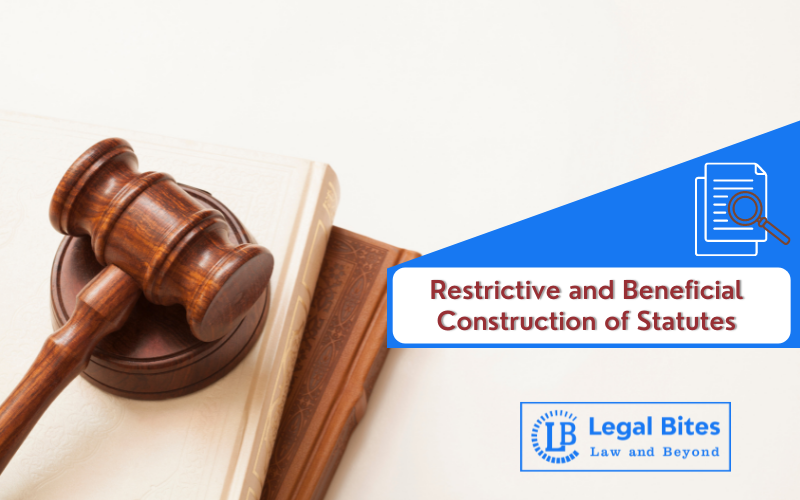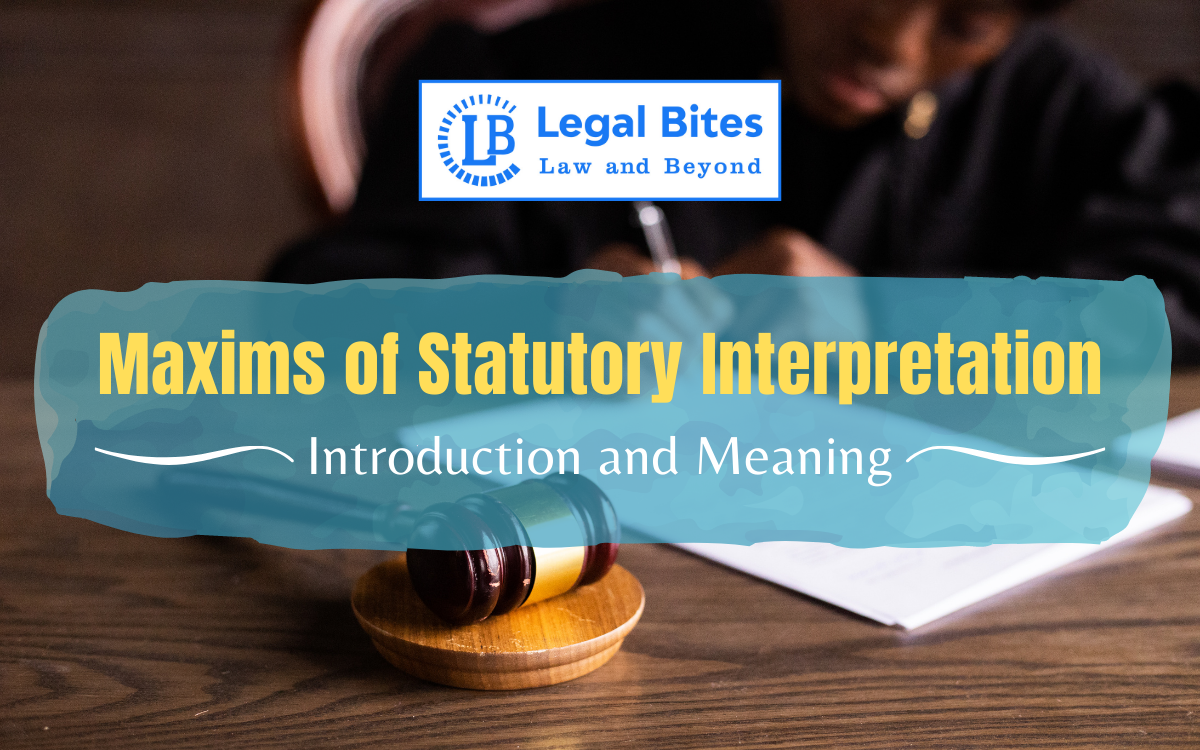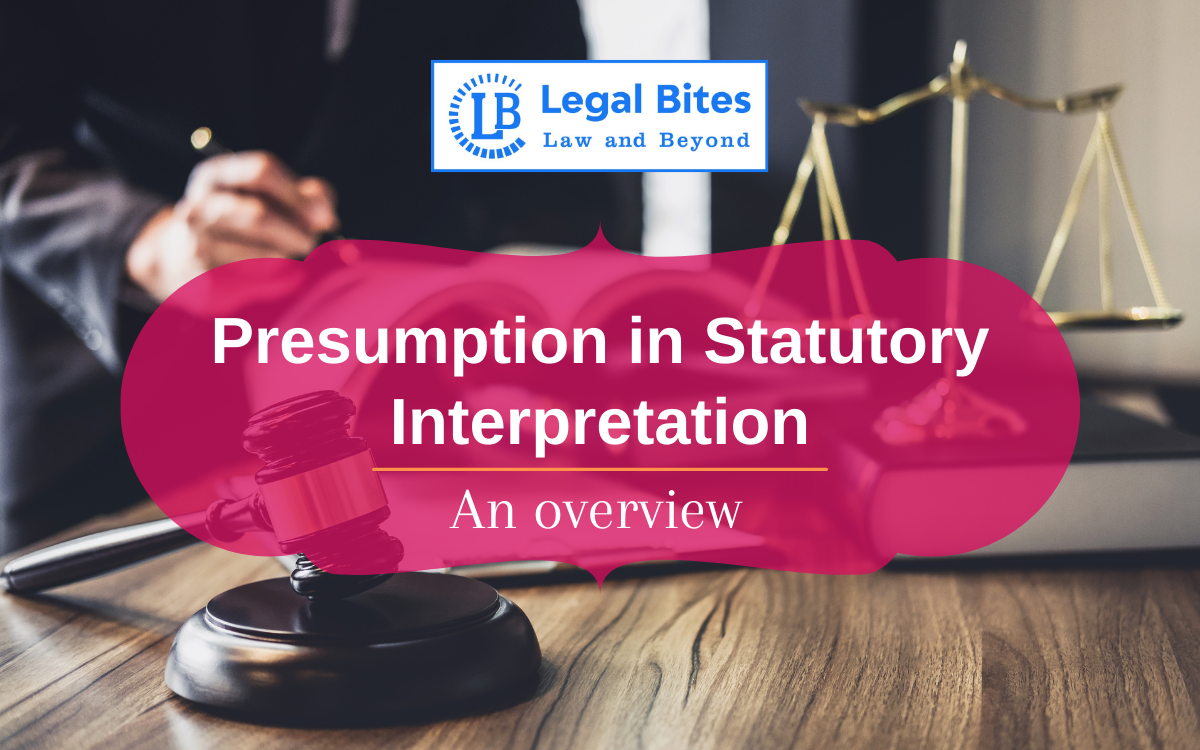Expiry and Repeal of Statutes: Introduction and Meaning
This article explains the meaning, types, and legal impact of expiry and repeal of statutes under interpretation of statutes in Indian law.;

The lifecycle of a statute is not infinite. Laws are enacted to meet the changing needs of society and the state, and they may eventually become obsolete, unnecessary, or even counterproductive. Consequently, legal systems around the world, including India, provide mechanisms for statutes to cease to operate—either automatically through expiry or through deliberate legislative action known as repeal. Understanding the concepts of expiry and repeal is essential in statutory interpretation,...
The lifecycle of a statute is not infinite. Laws are enacted to meet the changing needs of society and the state, and they may eventually become obsolete, unnecessary, or even counterproductive. Consequently, legal systems around the world, including India, provide mechanisms for statutes to cease to operate—either automatically through expiry or through deliberate legislative action known as repeal. Understanding the concepts of expiry and repeal is essential in statutory interpretation, as courts often have to determine whether a statute remains valid, whether rights and obligations continue post-repeal, and how transitional provisions operate.
This article explores the meaning, types, and implications of expiry and repeal of statutes with reference to relevant statutory provisions and judicial interpretations.
Meaning of Expiry and Repeal
Expiry of Statutes
Expiry refers to the automatic cessation of a statute’s operation upon the occurrence of a specified event or the passage of a stipulated time period. Such statutes are known as temporary statutes. Their validity is inherently limited by their terms of enactment, and they do not require any formal legislative action to cease operation.
A statute may be expressed to remain in force for a specific period, such as “for a period of five years from the date of commencement.” Upon the expiration of that period, the statute lapses.
Repeal of Statutes
Repeal, on the other hand, is the formal revocation of a statute, either wholly or in part, through legislative action. Repeal may be express or implied. An express repeal occurs when a statute explicitly states that an earlier enactment is repealed. An implied repeal occurs when a newer statute contains provisions so inconsistent with an earlier statute that both cannot stand together.
Repeal does not necessarily mean the law never existed; it simply means that the law ceases to have effect from the date of repeal unless saved by specific provisions.
Legal Framework in India
Temporary and Permanent Statutes
The Indian legal framework distinguishes between permanent and temporary statutes. While the Constitution of India does not explicitly define either term, the principle is rooted in legislative practice and judicial interpretation.
A temporary statute is one that comes to an end after a particular period or event, while a permanent statute continues indefinitely until repealed.
Examples of temporary statutes in India include:
- Prevention of Terrorism Act, 2002 (POTA) – explicitly stated to be in force for a limited period.
- Emergency ordinances – which lapse if not approved within six weeks of the reassembly of Parliament (Article 123).
The General Clauses Act, 1897
Sections 6 and 7 of the General Clauses Act, 1897, are particularly relevant when dealing with the repeal of statutes.
Section 6: Effect of Repeal – Unless a different intention appears, the repeal of an enactment does not:
- Revive anything not in force or existing at the time;
- Affect the previous operation of the enactment;
- Affect any right, privilege, obligation, or liability acquired or incurred;
- Affect any penalty or punishment incurred;
- Affect any investigation, legal proceeding, or remedy in respect of any such right or liability.
Section 7: Expresses the effect of expiry of a temporary statute and reinforces the understanding that upon expiry, the law ceases to operate.
Judicial Interpretation
Expiry of Statutes
In State of Punjab v. Mohar Singh Pratap Singh, AIR 1955 SC 84, the Supreme Court held that when a temporary statute expires, proceedings under the statute that have already been initiated may continue unless the statute indicates a contrary intention.
Similarly, in A.K. Roy v. Union of India, AIR 1982 SC 710, the Court dealt with the lapse of the National Security Ordinance and held that expiry does not automatically nullify all acts performed under it.
Repeal of Statutes
The doctrine of repeal was elaborated in State of Orissa v. M.A. Tulloch and Co., AIR 1964 SC 1284, where the Court clarified that even in cases of implied repeal, the courts must presume against repeal unless the inconsistency is so irreconcilable that both statutes cannot operate together.
In Kolhapur Canesugar Works Ltd. v. Union of India, AIR 2000 SC 811, the Supreme Court reiterated that repeal would not affect pending proceedings unless a contrary intention is expressly or by necessary implication evident from the repealing law.
Types of Repeal
1. Express Repeal
This occurs when a later statute expressly states that an earlier statute is repealed. For example:
“Section 32 of the XYZ Act, 2024 is hereby repealed.”
2. Implied Repeal
This occurs when two statutes are so inconsistent that they cannot coexist. Courts apply a high threshold in recognizing implied repeal, favoring harmonization over annulment.
3. Conditional Repeal
A repeal that depends on the occurrence of a certain condition. This is rare but may be found in sunset clauses or contingent legislation.
4. Partial Repeal
Only a part of the statute is repealed, while the rest remains in force.
Consequences of Expiry and Repeal
Consequences of Expiry
The statute ceases to have future effect.
Past actions under the statute generally remain valid.
Legal proceedings already instituted may continue depending on legislative intent.
No further rights or liabilities can accrue under the statute post-expiry.
Consequences of Repeal
The statute is no longer law from the date of repeal.
Past actions, rights, liabilities, and penalties may be preserved under Section 6 of the General Clauses Act.
Pending litigation may continue unless the repealing act expresses an intention to the contrary.
Saving Clauses
To avoid unintended consequences, repeal statutes often include a “saving clause.” These clauses protect ongoing actions or rights accrued under the repealed statute.
For example, Section 97 of the Right to Fair Compensation and Transparency in Land Acquisition, Rehabilitation and Resettlement Act, 2013 saves proceedings under the repealed Land Acquisition Act, 1894, in certain cases.
Contemporary Relevance
With the growing use of technology and rapid socio-economic shifts, legislatures are increasingly relying on temporary statutes or sunset clauses to review and revise laws periodically. This ensures laws do not become stagnant. Simultaneously, old and redundant laws are being repealed en masse through repeal acts. For example:
- Repealing and Amending Act, 2019 repealed 58 obsolete laws.
- The trend is to remove colonial-era and redundant statutes that have no contemporary relevance.
Conclusion
Understanding the concepts of expiry and repeal is vital for both legislative drafting and judicial interpretation. While expiry denotes a statute’s automatic end, repeal is a conscious legislative act. In both cases, the impact on rights, liabilities, and ongoing proceedings must be assessed based on legislative intent, supported by interpretative principles and legal presumptions enshrined in the General Clauses Act. Courts play a crucial role in ensuring that the transition from one legal regime to another is smooth and equitable, especially in the context of rights already accrued or proceedings already initiated.
References
[1] The General Clauses Act, 1897, Sections 6 and 7
[2] State of Punjab v. Mohar Singh Pratap Singh, AIR 1955 SC 84
[3] A.K. Roy v. Union of India, AIR 1982 SC 710
[4] State of Orissa v. M.A. Tulloch and Co., AIR 1964 SC 1284
[5] Kolhapur Canesugar Works Ltd. v. Union of India, AIR 2000 SC 811
[6] Right to Fair Compensation and Transparency in Land Acquisition Act, 2013, Section 97
[7] Repealing and Amending Act, 2019
[8] Bindra’s Interpretation of Statutes, LexisNexis
[9] G.P. Singh, Principles of Statutory Interpretation, 15th Edition, LexisNexis





